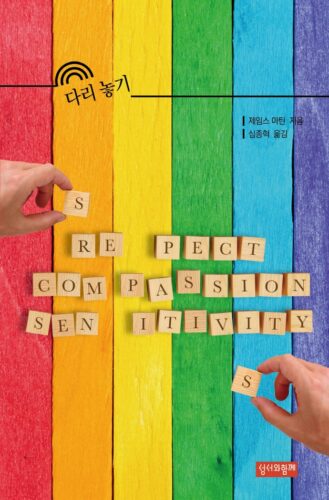The new podcast “Dear Alana” tells the story of a 24-year-old Catholic woman who died by suicide in 2019, after church leaders reportedly attempted to suppress her sexuality through conversion therapy.
The podcast chronicles Alana Chen’s experience of falling in love with Catholicism while realizing she was attracted to women. As a teenager in Colorado, Alana, who was at the time absorbed by conservative Catholic culture, decided she wanted to become a nun and secretly received counseling from religious leaders and therapists whom she thought could help change her sexuality.
Created, produced and narrated by Simon Kent Fung—who himself survived conversion therapy and who brings his intimate familiarity with conservative Catholicism—the series dives deep into how a bright young Catholic’s path could end in such tragedy.
When the news broke of Chen’s death, it felt hauntingly familiar to Fung, who saw parallels with his experience as a devout gay man who wanted to become a priest.
“This is the story of a girl caught between earnest faith and the American culture wars,” Fung says in his introduction to the podcast. “Teenage rebellion and spiritual manipulation. The promise of purity and the price we pay to belong. And this is my story—of how a girl I never met would turn my faith and my life upside down.”
When the news broke of Chen’s death, it felt hauntingly familiar to Fung, who saw parallels with his experience as a devout gay man who wanted to become a priest. He reached out to Chen’s family to offer consolation, becoming close with Chen’s mother and visiting her home in Boulder, Colo.
In the two dozen journals that Chen left behind, she wrote about her love of Ultimate Frisbee and fashion, prayers and letters to God, and her struggles to understand her sexuality and square it with her faith. Chen’s mother granted Fung access to her daughter’s journals to create a complex and empathetic portrait of Chen’s life and untimely death.
Conversion therapy and suicide are difficult topics to discuss. To create hours of content about these issues, while striking the right tone and without alienating an audience or losing its interest, is an even more formidable challenge. But a couple of episodes in, Fung won me over.
Fung tells Chen’s story quietly and with deep sensitivity. Weaving together excerpts from her diaries, interviews with her family and friends, and narration and personal anecdotes from Fung, the podcast delicately portrays both the tragedy of a young woman’s life cut short and the culture of a church in which she felt unable to survive.
The podcast delicately portrays both the tragedy of a young woman’s life cut short and the culture of a church in which she felt unable to survive.
It’s clear from the start that for Fung, this isn’t just another story. He feels a deep sense of connection with Chen. “If you had told me that someone who died, who I’d never met, would take me from my life in San Francisco, compel me to spend the next three years following her story and make me confront my biggest fears in real time, I wouldn’t have believed you,” he says.
And yet that’s exactly what happened.
Despite the podcast’s heavy subject matter, Fung manages to strike a careful tone that conveys the story’s gravity without overwhelming listeners. For Fung, Chen’s experience hits close to home. He sought out conversion therapy as a young transplant to New York City, hoping to become a priest and believing that it would be impossible for him to do so unless he worked to change his sexuality. Sharing his personal story only bolsters his telling of what happened to Chen. He brings insight and candor that can only come from someone who knows firsthand what her journey must have been like.
“I’ve been to that dark place,” he tells listeners. Without a doubt, it is this understanding that gives Fung the capacity to tell Chen’s story with such grace.
Each episode balances Chen’s story with Fung’s own. He reveals enough of himself that listeners can understand why he decided to pursue this project and his familiarity with this particular Catholic subculture, but he does not overshadow Chen’s story. Where he includes his own story, it is to invite greater empathy from listeners, and to recognize that Chen’s experience is not unique. He keeps the emphasis squarely on Chen and her loved ones, quoting from her journals and interviewing her family and friends.
Fung shines in his ability to explain an obscure corner of Catholic culture to a general audience. Listeners with limited familiarity with Catholicism will find clear explanations that make the podcast easy to follow; listeners who might doubt finding common ground with Fung will quickly empathize with his story. Those for whom the combination of LGBTQ issues with Catholicism might be foreign or challenging will find the episodes accessible, neutral and compassionate.
It’s the sort of podcast that should be heard by priests, religion teachers, catechists, parents and youth group leaders across the country.
It is heartbreaking, and listeners with similar backgrounds may want to be cautious.
Fung reaches across demographics and invites in every listener. “Dear Alana” is the sort of podcast that should be heard by priests, religion teachers, catechists, parents and youth group leaders across the country.
Alana Chen was caught in the culture wars gripping the modern church, and she was not unique: plenty of other young Catholics have similar stories. Their stories need to be heard by anyone in a position to shape their faith lives. To create a church where no young Catholics believe they are broken, stories like “Dear Alana” can help to make a difference.
If you are having thoughts of suicide, call or text 988 to reach the 988 Suicide and Crisis Lifeline or go to SpeakingOfSuicide.com/resources for a list of additional resources.




